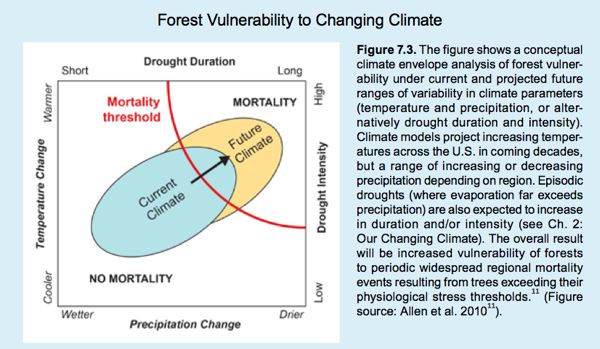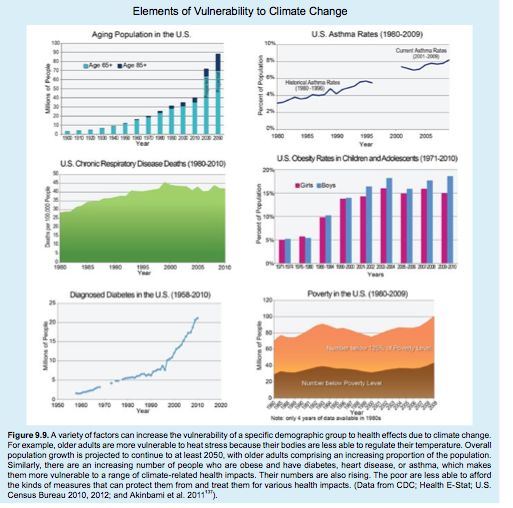Controversial “Forest Stewardship” Bill Vetoed By Christie Is Back
Serious Flaws and Lack of Safeguards Remain Unaddressed
How is it possible for any forestry initiative to not consider climate change? How can the most densely populated state not have urban forestry as a component of overall forest management?
[Update below]
The controversial “Forest Stewardship” legislation that was conditionally vetoed by Governor Christie last session is back for reconsideration on Monday by the Senate Environment Committee.
This session’s bill – see S2034 – is again sponsored by Chairman Bob Smith.
Most environmental groups oppose the bill because it would promote commercial logging on state lands and because it lacks effective safeguards. In fact, the original introduced version of the bill was titled “Forest Harvest” and it openly and unabashedly promoted commercial logging.
However, other conservation groups – all of whom would in some way benefit from the legislation – support the revised version of the original bill – despite the fact that the bill’s supporters include commercial logging interests – and feel that the private Forest Stewardship Council (FSC) certification process provides adequate safeguards.
But, DEP opposes the FSC role and Gov. Christie vetoed the bill because of the FSC role.
I have written multiple posts in strong opposition to the bill on multiple grounds I will not repeat here. This brief note is intended merely a heads up on Monday’s hearing.
However, I did write to Senators Smith (Chairman & sponsor) and Bateman, the ranking Republican, to urge that they consider amendments, as follows –
How is it possible for any forestry initiative to not consider climate change? How can the most densely populated state not have urban forestry as a component of overall forest management?:
Dear Chairman Smith:
I note that your “forest stewardship” bill, S2034, is up for consideration on Monday.
As you know, I oppose this bill for several reasons, which I will not rehash here.
However, as you also know, I previously suggested major changes to the original introduced version of the “forest harvest” bill, many of which you agreed to and adopted, that made the bill palatable to conservation groups and fostered compromise (recalling the old adage: “be careful what you ask for”).
So, with that disinterested spirit of improvement in mind, let me suggest further new amendments (in addition to those you’ve already rejected) to improve your bill.
These are all sound policy ideas, backed by lots of science, and implemented in many places in the US and internationally:
1. Recognize climate change as a major threat to forest ecosystems and require that climate change impacts, afforestation, and adaptation techniques be included in all forest management plans.
The bill as drafted merely suggests that carbon sequestration be “considered”. The single legislative finding on climate is far too narrow.
The scientific basis for this amendment would be the recent US National Climate Assessment, which documents and projects forest impacts in the northeast region. Read and download that Report here.
2. Recognize urban “heat island” and related energy, clean air, public health, environmental justice, and aesthetic benefits of an urban forestry program
The basis for these recommendations is provided here:
3. Establish an urban forestry program and set a time bounded numerical planting goal – 1 million trees in NJ’s cities.
Urban forestry is justified not only by science and public health, but by environmental justice, redevelopment, and aesthetic concerns.
The above are all new suggestions –
In conclusion, I could support this legislation if you could also amend the bill to:
a) subject Forest management Plans and forestry operations to all current regulatory standards and requirements that apply to development;
b) eliminate the Forest Stewardship Council;
c) delete the distribution of revenues to DEP, or what I have described as “perverse incentives” that promote logging;
d) ban commercial logging;
e) ban chemical herbicides
f) expand and formalize public participation requirements in the Forest Management Planning process.
g) include requirements for field monitoring and stronger enforcement provisions to create incentives to comply;
i) prohibit use of forest “products” for commercial energy recovery or consideration as “renewable energy” (residential firewood is OK)
I appreciate your consideration,
Bill Wolfe, Director
NJ PEER
[Update – National Climate Assessment – Chapter 7 – Forestry
Key Messages
- Climate change is increasing the vulnerability of many forests to ecosystem changes and tree mortality through fire, insect infestations, drought, and disease outbreaks.
- U.S. forests and associated wood products currently absorb and store the equivalent of about 16% of all carbon dioxide (CO2) emitted by fossil fuel burning in the U.S. each year. Climate change, combined with current societal trends in land use and forest management, is projected to reduce this rate of forest CO2 uptake
Key Messages
- Climate change threatens human health and well-being in many ways, including impacts from increased extreme weather events, wildfire, decreased air quality, threats to mental health, and illnesses transmitted by food, water, and disease-carriers such as mosquitoes and ticks. Some of these health impacts are already underway in the United States
- Climate change will, absent other changes, amplify some of the existing health threats the nation now faces. Certain people and communities are especially vulnerable, including children, the elderly, the sick, the poor, and some communities of color.
- Public health actions, especially preparedness and prevention, can do much to protect people from some of the impacts of climate change. Early action provides the largest health benefits As threats increase, our ability to adapt to future changes may be limited.
- Responding to climate change provides opportunities to improve human health and well-being across many sectors, including energy, agriculture, and transportation. Many of these strategies offer a variety of benefits, protecting people while combating climate change and providing other societal benefits.



Pingback: camiseta de futbol inglaterra
Pingback: christian louboutin replica
Pingback: ray ban rb2140
Pingback: chelsea football shirt sale
Pingback: YFWcqvRe
Pingback: wann wird das neue bvb trikot vorgestellt 2013
Pingback: maillot foot equipe belge
Pingback: camiseta original barcelona 2012
Pingback: Pourquoi ne pas vérifier ici
Pingback: ce lien hypertexte
Pingback: ray ban sunglasses cheap
Pingback: aktuelles barcelona trikot
Pingback: maillot psg 2013 ext
Pingback: inter milan polo shirt
Pingback: dfb trikot 2010 ausw?rts damen
Pingback: christian louboutin outlet store
Pingback: gucci belts for men
Pingback: coach canada factory
Pingback: bayern trikot 14 15
Pingback: bvb trikot 2013 hummels
Pingback: WolfeNotes.com » Structural Racism “Works” For the Same Reasons That The Environmental Justice Bill Will Fail
Pingback: WolfeNotes.com » NJ Spotlight Misleads Readers About Benefits of NJ Electric Vehicle Program
Pingback: WolfeNotes.com » Advocates Urged To Withdraw Support For Flawed Environmental Justice Bill Now On NJ Gov. Murphy’s Desk
Pingback: WolfeNotes.com » Murphy DEP Commissioner LaTourette Gaslights On Environmental Justice
Pingback: WolfeNotes.com » NJ State Planners Issue Local Government “Climate Resilience” Guidance Document
Pingback: WolfeNotes.com » Murphy DEP Proposes Long Delayed Environmental Justice Regulations
Pingback: WolfeNotes.com » Murphy DEP Finds Another Bright Shining Object To Deflect Attention From Gov. Murphy’s Climate Collapse
Pingback: WolfeNotes.com » Beyond Gaslighting And Tokenism: NJ Conservation Foundation Flat Out Lying About DEP Urban Tree Grants